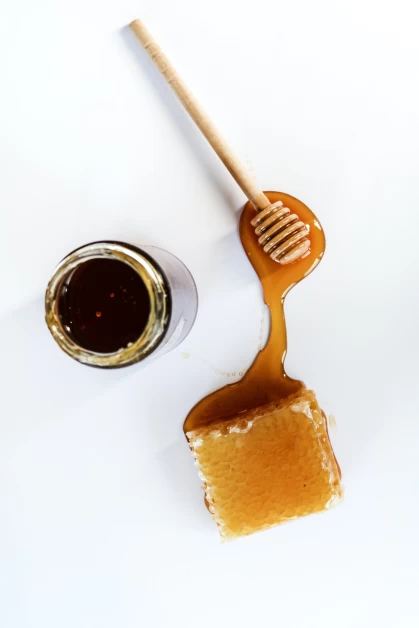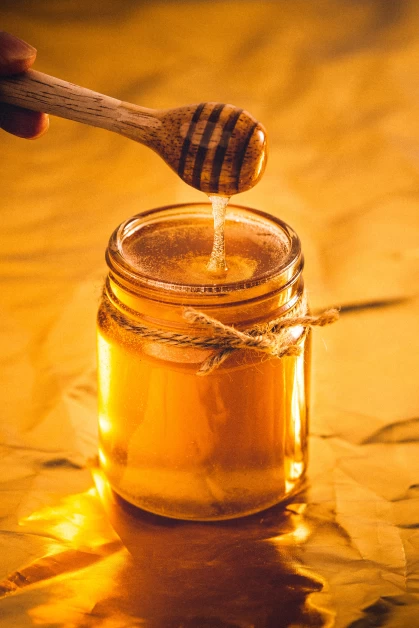Table of Contents
Introduction
Manuka honey is often hailed as a superfood due to its numerous health benefits. This article will explore how Manuka honey can help lower cholesterol levels and improve overall cardiovascular health. With its anti-inflammatory, antimicrobial, and antioxidant properties, Manuka honey has gained popularity as a natural remedy for various health conditions. We will delve into the origins of Manuka honey, its medicinal properties, and how it can be incorporated into your diet to promote heart health.
The Māori and the Manuka Tree
The Māori, the indigenous people of New Zealand, have revered the Manuka tree for centuries. They considered it a treasure and utilized different parts of the tree for various purposes, including medicinal applications. The Manuka tree, scientifically known as Leptospermum scoparium, is a scrub-type evergreen tree that thrives in coastal regions of New Zealand. It is known for its ability to regenerate on land previously cleared for farming.
Birth of Manuka Honey
In 1839, Mary Bumby, a missionary and beekeeper, introduced European bumble bees to New Zealand. These bees were particularly fond of the Manuka tree’s blossoms, resulting in the production of Manuka honey. However, for the first fifty years, Manuka honey was not highly valued, and its medicinal properties remained unknown. Beekeepers even considered it a nuisance due to the difficulty in extracting the honey and its strong flavor, which couldn’t compete with popular varieties like clover honey.
Medicinal Properties of Manuka Honey
It wasn’t until the early 20th century that scientists recognized the significant antibacterial properties of Manuka honey. Researchers at the University of Waikato discovered methylglyoxal (MGO) in Manuka honey, which is responsible for its potent antibacterial activity. This breakthrough led to the commercialization of Manuka honey as a natural health product, with a focus on its antibacterial properties. In addition to its antimicrobial effects, Manuka honey has also been found to promote tissue regeneration, inhibit carcinogenesis, and aid in the treatment of acid reflux.
Manuka Honey for Lowering Cholesterol
Now let’s explore how Manuka honey can contribute to lowering cholesterol levels and improving heart health. High cholesterol is a significant risk factor for cardiovascular disease, and finding natural remedies to manage cholesterol levels is crucial. Manuka honey offers several benefits that can help in this regard.
1. Anti-Inflammatory Properties
Chronic inflammation plays a key role in the development of atherosclerosis, a condition characterized by the buildup of plaque in the arteries. Manuka honey’s strong anti-inflammatory properties can help reduce inflammation and prevent the progression of atherosclerosis. By reducing inflammation in the blood vessels, Manuka honey can contribute to improved cardiovascular health and lower cholesterol levels.
2. Antioxidant Effects
Manuka honey is rich in antioxidants, which help protect cells from damage caused by free radicals. This antioxidant activity can prevent oxidative stress, a major contributor to the development of cardiovascular disease. By neutralizing free radicals, Manuka honey can reduce the oxidation of LDL cholesterol, commonly referred to as “bad” cholesterol. This, in turn, can help prevent the formation of plaque in the arteries and lower the risk of heart disease.
3. Fiber Content
Manuka honey contains a small amount of dietary fiber, which can aid in lowering cholesterol levels. Fiber acts as a sponge in the digestive system, binding to cholesterol and preventing its absorption into the bloodstream. By incorporating Manuka honey into your diet, you can increase your fiber intake and promote the removal of excess cholesterol from your body.
4. Prebiotic Properties
Prebiotics are substances that promote the growth of beneficial bacteria in the gut. These bacteria play a crucial role in maintaining overall health, including cardiovascular health. Manuka honey acts as a prebiotic, nourishing the gut microbiota and promoting a healthy balance of bacteria. A healthy gut microbiota has been linked to reduced cholesterol levels and improved heart health.
Incorporating Manuka Honey into Your Diet
Now that you understand the cholesterol-lowering benefits of Manuka honey, let’s explore how you can incorporate it into your daily routine.
- Direct Consumption
Taking a small teaspoon of Manuka honey before meals can help coat the throat, esophagus, and stomach, reducing inflammation caused by acid reflux. This direct consumption also allows the honey’s anti-inflammatory and antimicrobial properties to take effect.
- Tea Infusion
Adding a half-teaspoon of Manuka honey to hot water can create a soothing cup of tea. You can also combine it with other herbal teas like chamomile or ginger tea for added benefits. This infusion can help alleviate acid reflux symptoms and promote overall digestive health.
- Honey Lozenges
Manuka honey lozenges can be taken after meals to prevent reflux and soothe the throat. These lozenges provide a convenient and portable way to enjoy the benefits of Manuka honey throughout the day.
- Food Pairings
You can incorporate Manuka honey into various foods to enhance their nutritional value. Adding it to yogurt, oatmeal, or cereal can provide a delicious and nutritious boost. This way, you can enjoy the cholesterol-lowering benefits of Manuka honey while enjoying your favorite meals.
Precautions and Conclusion
While Manuka honey offers numerous health benefits, there are a few precautions to keep in mind. If you are diabetic or need to limit your sugar intake, consult with your healthcare provider before incorporating Manuka honey into your diet. Additionally, be mindful of any potential allergic reactions or sensitivities to honey. It is also important to note that Manuka honey should not be given to infants.
In conclusion, Manuka honey has proven to be a versatile and effective natural remedy for various health conditions, including acid reflux and high cholesterol. Its anti-inflammatory, antimicrobial, and antioxidant properties make it a powerful ally in promoting cardiovascular health. By incorporating Manuka honey into your diet, you can harness its cholesterol-lowering benefits and improve your overall well-being.
Remember, when selecting Manuka honey, look for reputable brands from New Zealand, as they are known to produce the highest quality honey. With the right approach and proper precautions, Manuka honey can be a valuable addition to your heart-healthy lifestyle.
References:
-
Niaz, K., et al. (2017). Health Benefits of Manuka Honey as an Essential Constituent for Tissue Regeneration. Current Drug Metabolism, 19(9), 774-781.
-
About Manuka Honey. (n.d.). Retrieved from https://aboutmanukahoney.com






